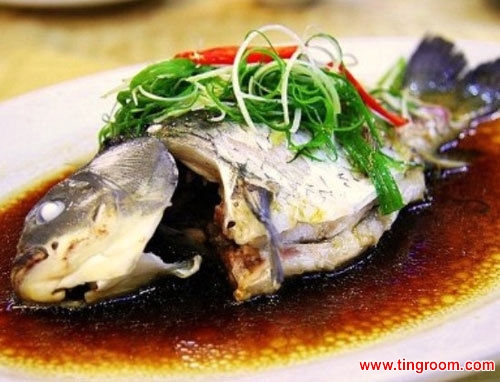CCTV9英语新闻:中国春节的传统的菜肴
(单词翻译:单击)
The Chinese appetite is never stronger than at the start of the year. Fish, rice cakes, dried sausages are just some of the foods that traditionally make their way onto the Spring Festival dinner table. Not only do the dishes themselves matter, but also the preparation, ways of serving and -- eating them.
The look, the smell, the taste, and perhaps most important -- than anything, the meaning a dish carries. On the New Year Eve's dinner table of every Chinese family -- fish.

On the New Year Eve's dinner table of every Chinese family -- fish.
The Chinese word for "fish" sounds like "surplus". If you manage to save something at the end of the year, then you can make more in the next year.
"Usually we don't finish the fish. This means we have more than we need for the whole year," said Yang Huiman, from Silk Palace Restaurant, Taipei.
Another popular food - Nian Gao, or sticky rice cakes. In Chinese, niangao sounds like "getting higher year by year".
"Every Lunar New Year, many families buy rice cakes, egg cakes, and turnovers2. These pastries3 come in different shapes and boxes. Some are made into the shape of a fish, which symbolizes4 good fortune," said Liu Jiansheng, from Guangdong Traditional Brands Association.
In South China, there is a savory5 seafood6 stew7 called Fo Tiao Qiang, or Buddha8 Jumps Over the Wall. Legend has it the aroma9 proved irresistible10 to a vegetarian11 monk12, who jumped over a high temple wall to find it.
"This dish uses more than twelve ingredients, including many high-quality delicacies13, like sea cucumber, dried scallops, abalone, bamboo shoots, shark fin1, and fish maw," said Cai Shirong, from Silk Palace Restaurant, Taipei.
The big mix of ingredients symbolizes both a big reunion and abundance.
 收听单词发音
收听单词发音 



